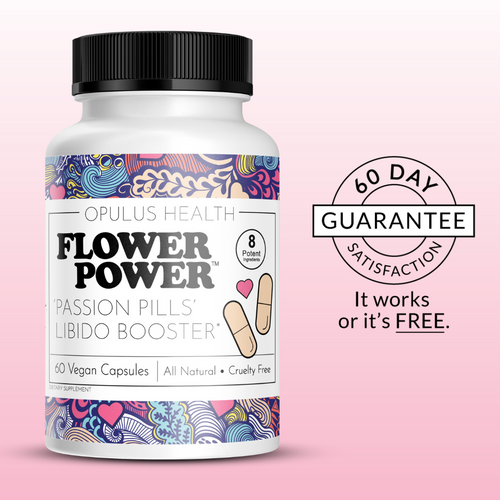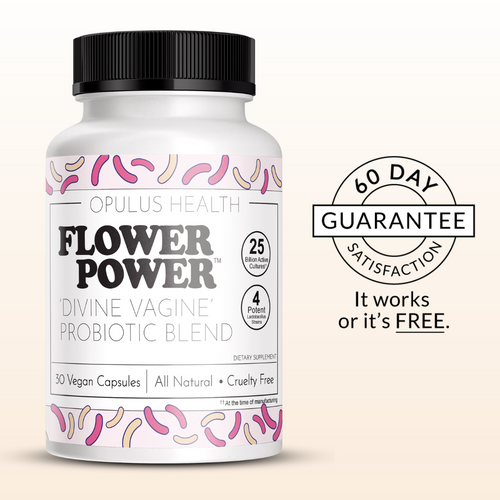A quick Google search might bring up some concerns about the safety of boric acid suppositories.
For example, you might discover that it’s used to make insecticides.
But that’s not the whole story. Boric acid’s amazing antibacterial properties is used in medicine to treat all kinds of infections. And we’ll discuss that in today’s article.
While swallowing a boric acid suppository might be potentially dangerous, inserting one into the vaginal is generally safe.
And in today’s article, we’ll cover boric acid’s toxicity… how to safely use it… its effectiveness against vaginal infections… and why it is highly recommended by reputable health organizations like the CDC.
Boric acid toxicity
Boric acid, like table salt, can be toxic if taken at very high doses.
How much boric acid will be toxic to a human being?
Let’s use the Merck Index to find out.
The Merck Index is a list that ranks the toxicity of different substances. And they give the lethal dose (LD) number of each substance.
The lethal dose is how much of a substance that’ll kill a human being.
The LD for boric acid 5.14g/Kg, and the LD of table salt is 3.75g/Kg.1
The LD for Ibuprofen is 0.636g/Kg. Aspirin is 0.2g/Kg. And caffeine is 0.192g/Kg.2
What are these numbers saying?
It means that if one has to take 5 cups of boric acid to die… only 3 cups of table salt will get the same result!
In a nutshell:
High doses of table salt will more easily kill a human being than boric acid!
It also means that it’s easier for a human being to die from an overdose of Ibuprofen, Aspirin or Caffeine… than from boric acid!
But that’s not all.
According to the Agency for Toxic Substances and Disease Registry, “A review of 784 human poisonings with boric acid (10–88 g) reported no fatalities, with 88% of cases being asymptomatic.”
That’s true. Even in a rare case of a boric acid overdose, there’s been no report of deaths from boric acid suppositories.
But we should still be careful with boric acid suppositories.
Since it looks like pills we take orally, it can be accidentally swallowed. And that is dangerous. It can lead to boric acid poisoning.
Some symptoms of boric acid poisoning include:
Abdominal pain, nausea or vomiting, diarrhea, headaches, feeling weak or lethargic, tremors and restlessness.
Why boric acid suppositories are generally considered safe
A 2011 statement from the CDC noted that about 30 grams of boric acid is toxic to humans and can eventually result in death.3
But one boric acid suppository contains 600 milligrams of boric acid. That’s 50 times less than the lethal dose.
You have to orally take 50 boric acid suppositories for it to be toxic.
But boric acid suppositories are not taken orally. They’re inserted into the vagina, which is much much safer.
Other Health uses of Boric Acid
Boric acid is well known for its antiseptic properties. It can inhibit the growth of microorganisms, helping to prevent or treat infections.4
And for that reason, it has been used to treat minor cuts and burns, eye infections, and even athlete’s foot.
Why boric acid is an effective treatment for vaginal issues
Boric acid has been found useful in treating certain types of vaginal infections. In particular, it has been used as a treatment for yeast infections and BV (bacterial vaginosis).
A number of studies have shown that boric acid can be an effective treatment for certain vaginal conditions.
For example, one study published in the Journal of Women's Health found that boric acid could successfully treat recurrent vulvovaginal candidiasis in many cases.5
A 2011 study review looked at fourteen studies that compared boric acid with other treatments for recurrent yeast infections. They found that boric acid had a cure rate of 40%-100% depending on the study.
Some women find that boric acid is a helpful treatment option when more traditional treatments (like antifungal or antibacterial medicines) have failed… or when infections are recurrent2.
How boric acid works in the vaginal microbiome
As you may know, the vagina cleans itself using lactic acid. This acid is produced by the good bacteria, Lactobacillus.
This is exactly how the natural cleaning mechanism works:
The good bacteria makes the lactic acid… the acid then kills the bad bacteria while maintaining optimal pH.
And boric acid works in a similar way.
It kills the bad bacteria in the vaginal flora, while restoring the perfect pH for your good bacteria to thrive.
And unlike antibiotics, boric acid targets only the bad bacteria. This is one of the reasons why it works so well.
And once the bad bacteria are taken care of, Lactobacillus can more easily take back control.
It is also effective against recurrent vaginal infections.
When an infection is recurrent, it means that the bacteria has developed biofilms.
Biofilms are shields that the bad bacteria hide under.
So whenever you take a treatment (like antibiotics), they go in there and chill out. Once the treatment wears out, they come out and the infection returns.
And the biofilms are sticky. They stick to the vaginal cells which is why they can’t be washed out with vaginal discharge.
But boric acid attacks these biofilms, and breaks them apart. That way it gets hold of all the bad bacteria that’s hiding under them and kills them all.
And while it’s doing this, it also resets the vaginal pH. That way, your pH remains optimal even after boric acid wears out.
And with optimal pH, Lactobacillus can easily take back control of the microbiome.
That’s why boric has a very high success rate with treating vaginal issues.
Side effects of using boric acid suppositories
Three side effects are associated with boric acid. They include:
- Mild vaginal burning
- Watery discharge
- Temporary vaginal redness
These cases are not common, but they can happen.
They can also be prevented by using medical-grade boric acid suppositories that are generally purer and safer.
When you notice any discomfort with boric acid suppositories, stop using them and contact your doctor.5
Sex and boric acid suppositories
It’s generally advised to avoid sex while using boric acid suppositories. And that includes oral sex.
Why?
Because (bacteria from your partner’s semen or saliva) will further disrupt your flora and prevent boric acid from working as well as it should.
But once you're done using boric acid, you can always return to having intimate moments with your partner.
Who should avoid using boric acid suppositories
Doctors generally advice that you avoid boric acid suppositories if you’re:
- Pregnant
- Breastfeeding and
- Have delicate health conditions like vaginal bleeding, weakened immune system, etc.
In conclusion
Boric acid, due to its acidic nature and antibacterial properties, has long been used as an antiseptic for minor burns, cuts, and abrasions.
And it’s also known for its effectiveness against chronic vaginal infections.
It works by creating an environment that is inhospitable to bad bacteria. This is how it kills them and prevents their growth.
It’s important to remember to use boric acid suppositories with care. And to keep it out of reach of children.
References
- The Fourteenth Edition of the Merck Index
- The Lethal Dose
- Boron | ToxFAQs™ | ATSDR
- Boric Acid - National Library of Medicine
- Boric Acid for Recurrent Vulvovaginal Candidiasis: The Clinical Evidence - Journal of Women's Health
- Healthline: No, You Won’t Die From Boric Acid Suppositories; What to Know
Here are more references for further reading:
- Boric Acid from Britannica
- Boric Acid from National Library of Medicine
- Boric acid for recurrent vulvovaginal candidiasis: the clinical evidence from Journal of Women's Health






